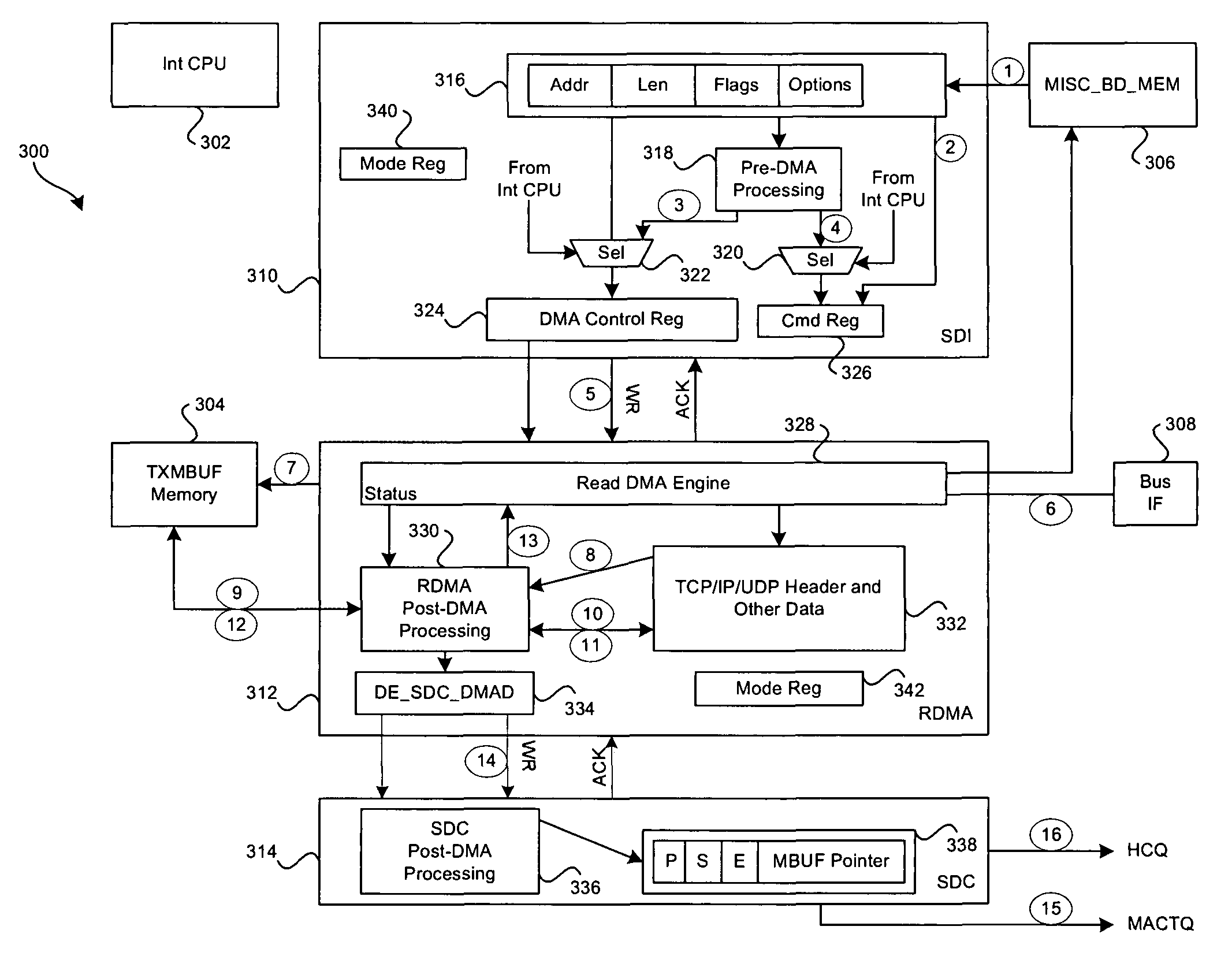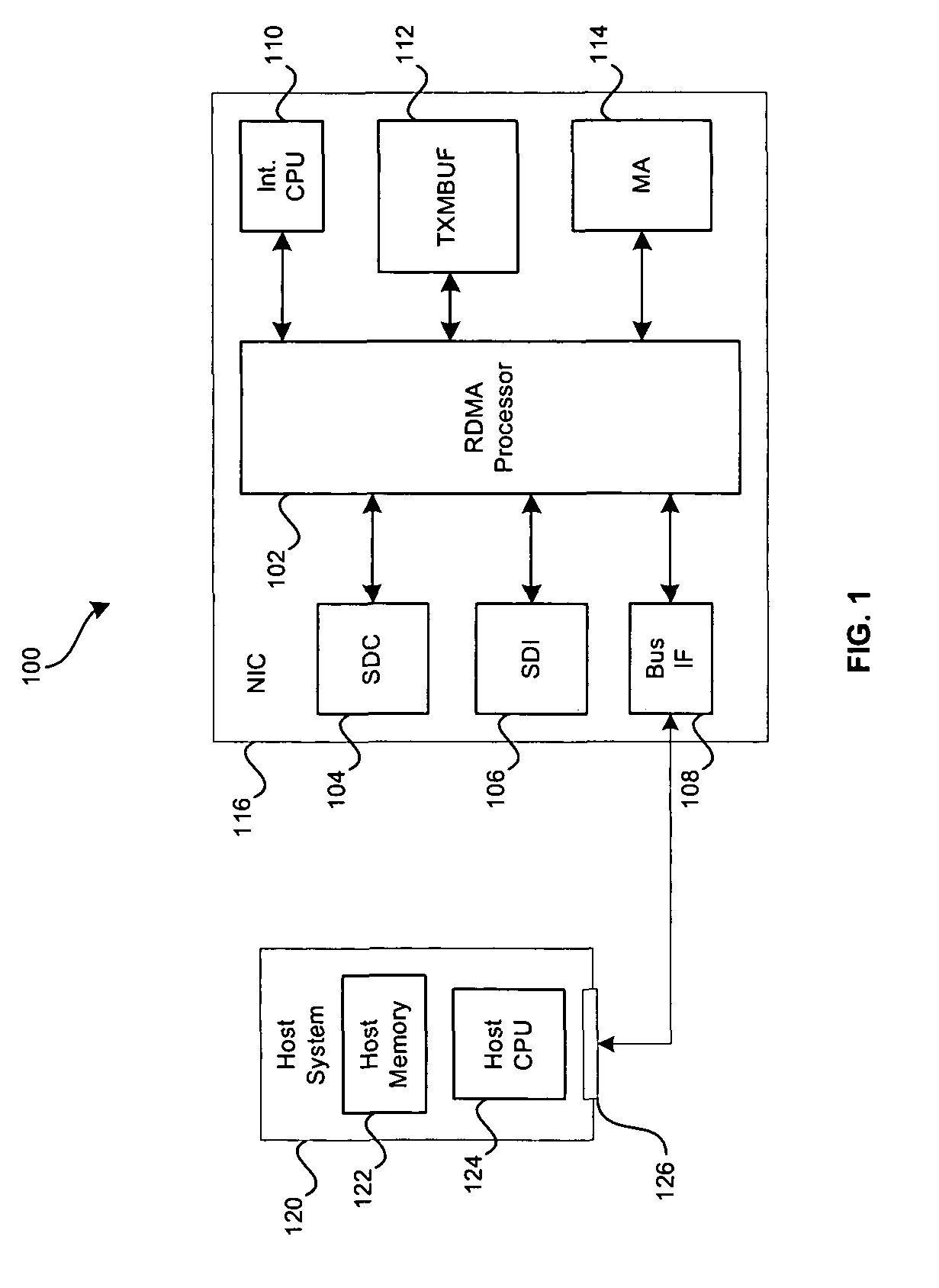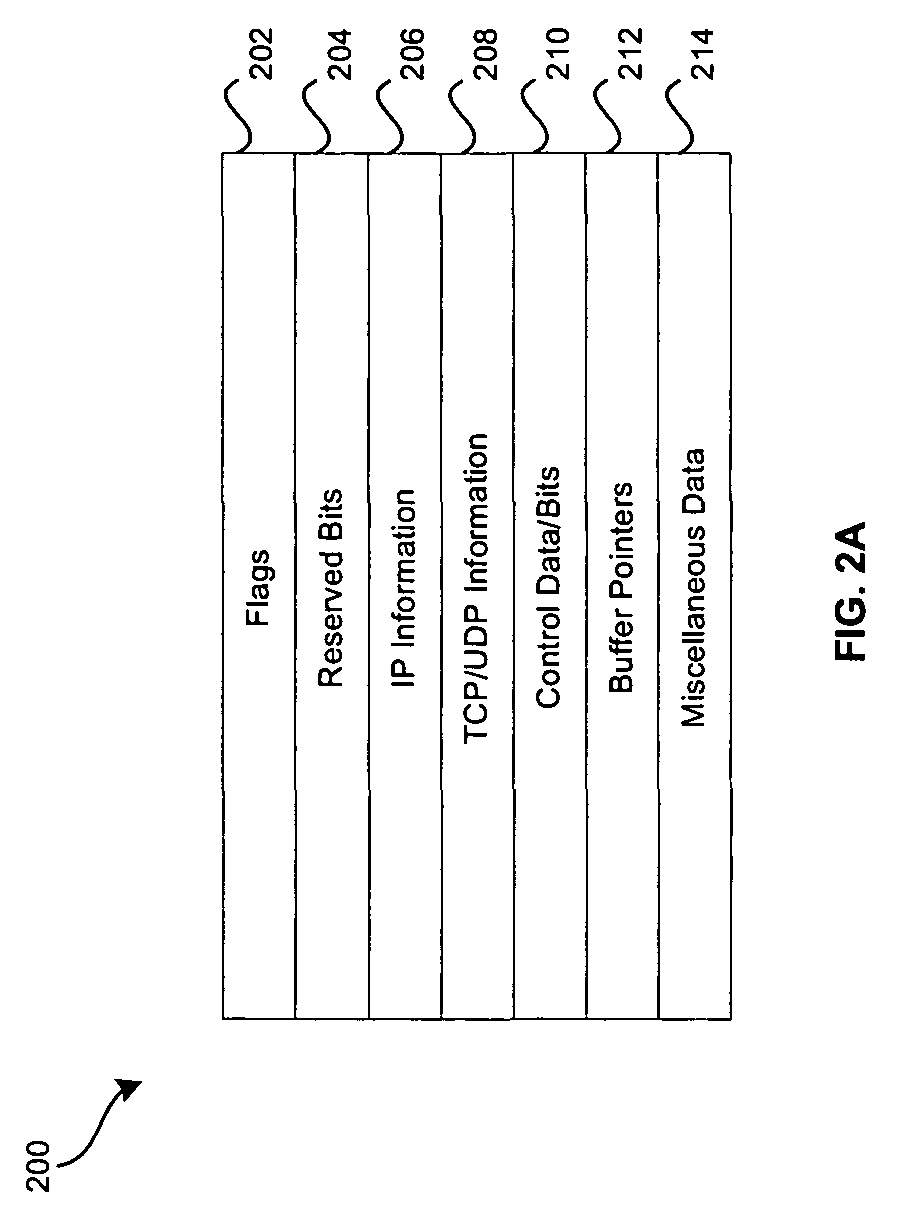Method and system for transmission control packet (TCP) segmentation offload
a transmission control packet and segmentation technology, applied in the field of transmission control packets (tcp), can solve the problemsaffecting system performance, and affecting system performance, and achieving the effect of reducing system performance, reducing system performance, and reducing system performan
- Summary
- Abstract
- Description
- Claims
- Application Information
AI Technical Summary
Benefits of technology
Problems solved by technology
Method used
Image
Examples
Embodiment Construction
[0029]Aspects of the present invention may be found in a method and system for improving performance of a network computing device that may be adapted for TCP segmentation offload. In this regard, the system and method may provide an effective and efficient approach to segmenting TCP packets that are identified as large send offload (LSO) packets. TCP segmentation of the large send offload packets may be performed in any combination of hardware, software and / or firmware. The hardware, software and / or firmware may effectively communicate with a control processor and / or central processing unit (CPU) in order to access packets such as the LSO packets, via a bus interface such as a peripheral connect interface (PCI), PCI-X or PCI Express bus.
[0030]FIG. 1 is block diagram of an exemplary system 100 that may be utilized in connection with TCP segmentation offload for processing segmentation requests in accordance with an embodiment. Referring to FIG. 1, there is shown a read direct memory...
PUM
 Login to View More
Login to View More Abstract
Description
Claims
Application Information
 Login to View More
Login to View More - R&D
- Intellectual Property
- Life Sciences
- Materials
- Tech Scout
- Unparalleled Data Quality
- Higher Quality Content
- 60% Fewer Hallucinations
Browse by: Latest US Patents, China's latest patents, Technical Efficacy Thesaurus, Application Domain, Technology Topic, Popular Technical Reports.
© 2025 PatSnap. All rights reserved.Legal|Privacy policy|Modern Slavery Act Transparency Statement|Sitemap|About US| Contact US: help@patsnap.com



